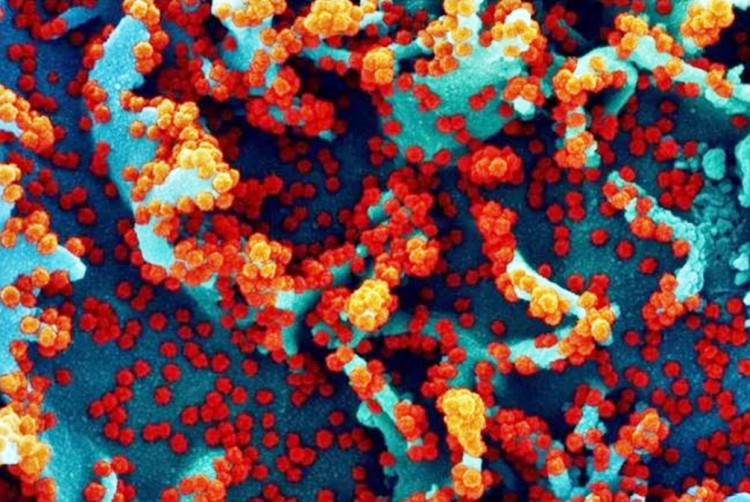A variant of SARS-CoV-2, the virus that causes COVID-19, is up to 104% deadlier than its parent strain, according to a new study out of the United Kingdom.
The UK variant designated B.1.1.7 has also been confirmed as up to 70% more infectious than its parent strain. First detected in Kent in September 2020, B.1.1.7 has fueled a new wave of infections pummeling the UK and Europe.
The U.S. Centers for Disease Control and Prevention (CDC) expects B.1.1.7 to become the dominant variant in the United States at the end of this month.
The new study published in the British Medical Journal (BMJ) on Wednesday reveals B.1.1.7 is 32% to 104% deadlier than the dominant variant called D614G SARS-CoV-2 from which it sprang. Scientists said the new variant's mortality rate is "significantly higher" than D614G.
The study compared death rates among people in the UK infected with B.1.1.7, and other variants of SARS-CoV-2. It found infections caused by B.1.1.7 led to 227 deaths in a sample of 54,906 COVID-19 patients in Britain compared to 141 among the same number of patients infected with other variants.
"Coupled with its ability to spread rapidly, this makes B.1.1.7 a threat that should be taken seriously," said Dr. Robert Challen, a researcher at Exeter University who co-led the research.
"The precise mechanisms responsible for increased mortality associated with the variant remain uncertain but could be related to higher levels of virus replication as well as increased transmissibility," said Dr. Lawrence Young, a virologist and professor of molecular oncology at Warwick University.
Variants of SARS-CoV-2 are now the most dangerous threat in the ongoing pandemic. New York City, the epicenter of the COVID-19 outbreak in the U.S. in the spring of 2020, is grappling against a new surge caused by new variants.
Mutations now represent more than half of all current cases in New York City, said Mayor Bill de Blasio. A new mutation called B.1.256, which was first identified in the city in late 2020, accounted for 39% of virus samples from the city's five boroughs over the past week, said Dr. Jay Varma, senior advisor for public health. The B.1.1.7 strain is responsible for 12% of total infections in the city, according to Varma.
Preliminary analysis indicates B.1.256 is more infectious than the original D614G, but doesn't appear to cause more severe illness or reduce the effectiveness of vaccines, according to Varma.






